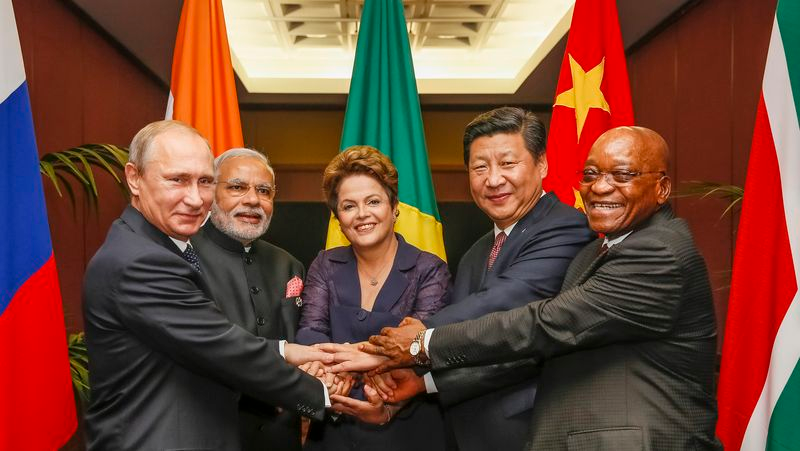As the BRICS countries consolidate their position as regional leaders, it is more important than ever that they set a strong precedent in the issues that matter most – particularly when it comes to the environment. If falls to the biggest emerging economies to work together in forging the low-carbon world we want to lead – writes Maxim Remchukov, Sustainable Development Head, SIBUR, in the Russia Digest of India’s Economic Times Newspaper.
Amongst all the excitement of the World Economic Forum and the meeting of G7 finance ministers this May, it would be easy to miss yet another summit which took place online last month. On May 20, representatives from the environmental authorities of Brazil, Russia, India, China, and South Africa met for the 8th BRICS Environment Ministers Meeting.
As the BRICS countries consolidate their position as regional leaders, it is more important than ever that they set a strong precedent in the issues that matter most— particularly when it comes to the environment. Areas of focus outlined by BRICS environment ministers in the New Delhi statement on the environment include resource efficiency, air pollution, marine plastic, and forest fire management. One particularly crucial priority area, however, is the circular economy.
The coronavirus pandemic served as a reminder of the shortcomings of fossil fuels. Supply chain shocks, lockdowns, and the re-emergence of protectionist trade policies—all of this highlighted the vulnerability of economies powered by hydrocarbons. At the same time, the pandemic also illustrated the relative resilience and security of renewable energy, which can be produced locally and with only a fraction of the ecological impact.
This provided an impetus for decisive climate action. Around 200 countries pledged to phase down their use of fossil fuels at COP26, the UN Climate Change Conference in Glasgow. Governments and companies need to take this opportunity to double down on their commitment to a circular economy. That means investing big in green technologies, boosting and
accelerating renewable energy projects, and researching new and innovative ways of cutting emissions.
Consumers are opting for sustainable lifestyle choices, while companies are beginning to invest in low-carbon alternatives to the products and services which cannot be practically phased out. Top executives in the India Climate Collaborative are looking for ways to decarbonise heavy industries like steel, cement, and fertiliser.
A similarly ambitious approach is needed in the plastics industry. The use of plastics in PPE, PCR tests, and other medical gear contributed to an increase in demand for plastics throughout the pandemic, but that wasn’t accompanied by a growth in recycling and waste management.
Today, less than 10 per cent of all plastics is recycled. This is a frustrating statistic given that the technologies to recycle plastics exist. Processes like chemical or advanced recycling allow us to break down polymers to their original monomer form and use them to make new plastics. The carbon footprint of a bottle made of recycled plastic is below 10g of CO2 throughout its lifetime, compared to 180g for a comparable bottle made out of aluminium. At present, far too many of these resources go to landfills, especially low-quality post-consumer packaging.
Responding to this challenge will require collaboration from governments on policies which improve recycling infrastructure, encourage private money to enter the sector, and direct more consumer waste back into the production process. But it also demands action on the part of companies. A strong stance is not enough;
corporations need to invest early in polymers with a greater proportion of recycled plastic.
SIBUR*, Russia’s largest petrochemical company, has always attached great importance to recycling, thanks to the visionary approach of its former CEO Dmitry Konov. The company has started producing PET granules from recycled feedstock at its site in Blagoveshchensk, and is committed to recycling 100,000 tons of polymer waste annually by 2025, earning it a Forbes rating as one of Russia’s 30 most eco-friendly companies.
Once the technology and infrastructure are in place to enable the production of low-carbon materials, their demand will grow. Then consumers can play a bigger role in giving preference to truly more sustainable products, and governments can gradually phase out single-use plastics. Companies, for their part, must continue to communicate with one another across borders in order to share best practice, cooperate on new technologies like carbon capture, and enable the reuse of products in a truly circular economy.
Whether decarbonising the steel industry, transitioning towards green energy, or devising solutions for polymer waste, the approach to questions of global importance must be collaborative. A system-level change is needed to capitalise on the transition that the pandemic started, and that calls for international consensus. It is time for BRICS to step up and show that the privilege of being world leaders comes with the responsibility of being stewards, too.
*SIBUR has a joint venture with Reliance to produce rubber in India.



















































